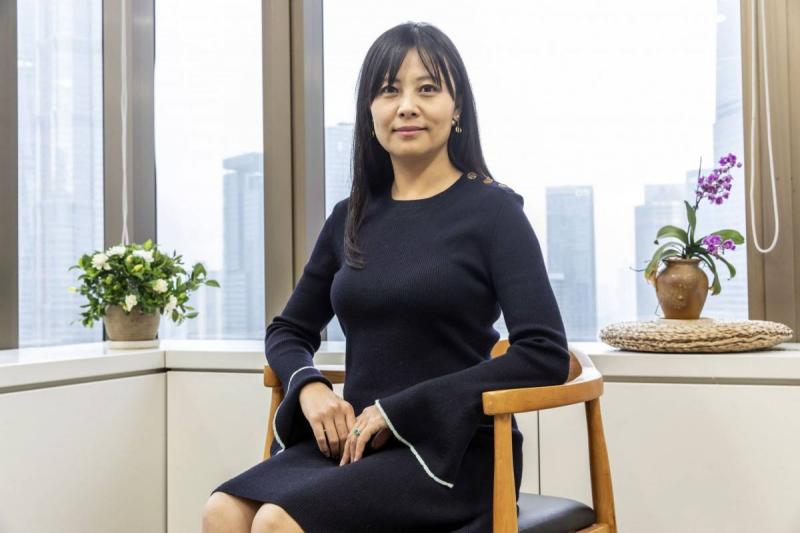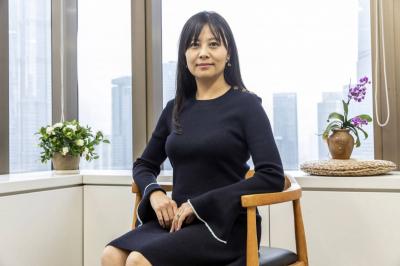Li Bei, who manages a hedge fund in Shanghai, quickly learned that the low-volatility investment approach that propelled Bridgewater Associates to success was doomed to fail in China for a startup like hers. Fixed returns did not attract investors enough, as they were used to receiving profits over short intervals. As a result, Bei invested her own money, increased leverage, and achieved leading industry gains of 258% last year.
Bei is a pioneer in macro hedge fund management in China, competing with giant foreign firms that struggle to adapt in a sector where even low-fee mutual funds generate significant returns. Although the Shanghai Banxia Investment Management Center, led by Bei, manages only about 500 million yuan (76 million dollars) in investments, she claims firms like hers are best positioned to gauge how China is driving the global economy. At 37 years old, Bei said in a phone interview from Shanghai, "We really feel that Chinese funds have a clear advantage in assessing corporate earnings and commodity prices. For us, this is a good time to make money."
According to data from PaiPaiWang Investment & Management in Shenzhen and Eurekahedge, Chinese macro hedge funds achieved an average return of 41% in 2020, four times the global level. The surge in profits, more than three times the previous level, placed Bei’s Banxia Stable fund at the top of the rankings of such funds in China. Eurekahedge data indicates that Bei's stellar year could compensate for the losses resulting from a massive outflow of investors in 2019, when her firm’s returns dwindled to just 9%, compared to other local mutual funds in the rising market, although this average was still higher than the global average for similar firms, which was 8.9%.
Ineffective Strategy
Bei sees Bridgewater’s strategy as ineffective in China, as the method of delivering two free research reports each month did not help attract new investments, and large institutions have also refrained from investing in Bei's fund due to its small size. When clients pulled money from the Banxia Stable fund, Bei would pump some of her own funds into the fund and added leverage between 250% and 300%.
The Banxia Stable fund, which manages less than 200 million yuan, follows the asset allocation pattern of Bei’s larger Panixia Macro fund but increases market exposure by engaging in margin-funded trades in sectors such as stock indices and commodity futures.
Achieving success last year was not an easy task for Bei. After managing assets at the Pukong Schroders fund early in her career, she won numerous industry awards for generating a 25% annual profit in the first public hedge fund in China, which belonged to Honghu Investment Management. However, the losses suffered by the fund in 2016 caused disagreements between her and her then-husband, Liang Wenta, the company’s founder. After their separation, Bei, a mother of two, established the Banxia fund at the end of 2017 and started from scratch to build relationships with clients.
William Ma, who until recently was an investment manager at Noah Holdings, which invested in the Banxia fund in January 2018, stated about Bei: "She is a very unique macro fund manager in China, with the ability to conduct highly focused and deep macro research in specific sectors like steel."
Role of Leverage
Bei mentions that the leverage level in the updated Banxia Stable fund approaches the level defined by legendary investor George Soros in his autobiography. She adds, "Although the change seems bold and simple, making the right moves during the disruptions that occurred last year requires us to carry out a highly intelligent assessment in order to achieve gains of 63% in the core strategy."
In January 2020, Bei was among the first to quickly move into stocks and commodities, monitoring not only reports on the spread of COVID-19 but also indicators of economic weakness. She stated that extremely cheap put options allowed her to add new strength to leverage, helping her achieve a 61% jump in the Banxia Stable fund’s leverage during the first quarter amid market turmoil.
One of the Best
Ma believes that Bei’s use of investment options to build different macro trades means that "her company's return profile is inversely correlated with her global and local peers." He adds: "She is truly one of the best macro hedge fund managers I have ever met."
Alongside competing with nearly 9,000 similar local companies, Bei's firm also competes with over 30 global firms in the 4.5 trillion yuan Chinese hedge fund market. Notably, prominent American investor Ray Dalio expressed the need to invest "a large part" of his investment portfolio in Chinese assets, and his firm, Bridgewater, raised 900 million yuan in its second private fund in China last September, effectively doubling the company's assets.
Bridgewater's All Weather China strategy recorded annual returns of 22% as of last July since its inception in 2018. Bei claimed that this figure was less than the 85% achieved by the Banxia Stable fund in the same period, noting that the differing strategies between the two companies cannot be directly compared.
As a reminder of the risks macro hedge funds face when betting in the wrong direction, Bridgewater's leading Pure Alpha II fund dropped by 12.6% last year. Li Minghong, head of fund investments at Panyao Capital in Shanghai, remarked that “the performance of macro funds heavily depends on the personal assessment of the fund manager, more than any other investment strategy.”
Erratic Period
The Banxia Stable fund declined by 13% in the first three months of this year, partially due to rising steel prices, with the fund's short-term investment positions in crude steel being adversely affected by China's unexpected move to cut commodity production and reduce capacity, as stated in the fund's quarterly statement to investors. The fund’s investments in bonds remained unchanged with no profit or loss, while it made modest gains in equities despite the Shanghai Shenzhen CSI 300 index dropping by 3%.
Banxia was not the only fund to post losses; over 40% of Chinese hedge funds experienced losses in the first quarter of this year, even though macro funds managed to achieve average gains of 1%, according to PaiPaiWang. Bei and her peers face a significant challenge attracting investors in a country where macro fund investments account for only 2% of a total of 65,129 local securities funds tracked by PaiPaiWang.
The 37-year-old states that she is now meeting more potential clients after the strong performance she delivered last year, but raising funds is still difficult. This challenge is partly due to the short history of Banxia in the market. Bei points out that her firm was not affected by the collapse of the American family investment firm Archegos Capital Management, clarifying that its leverage is much lower than Archegos and its investment portfolio is more diversified.
The difficulties have not shaken Bei’s confidence in her ability to outperform firms like Bridgewater. She concludes by stating, "These companies should just hire people like me... but I won’t work with them."




